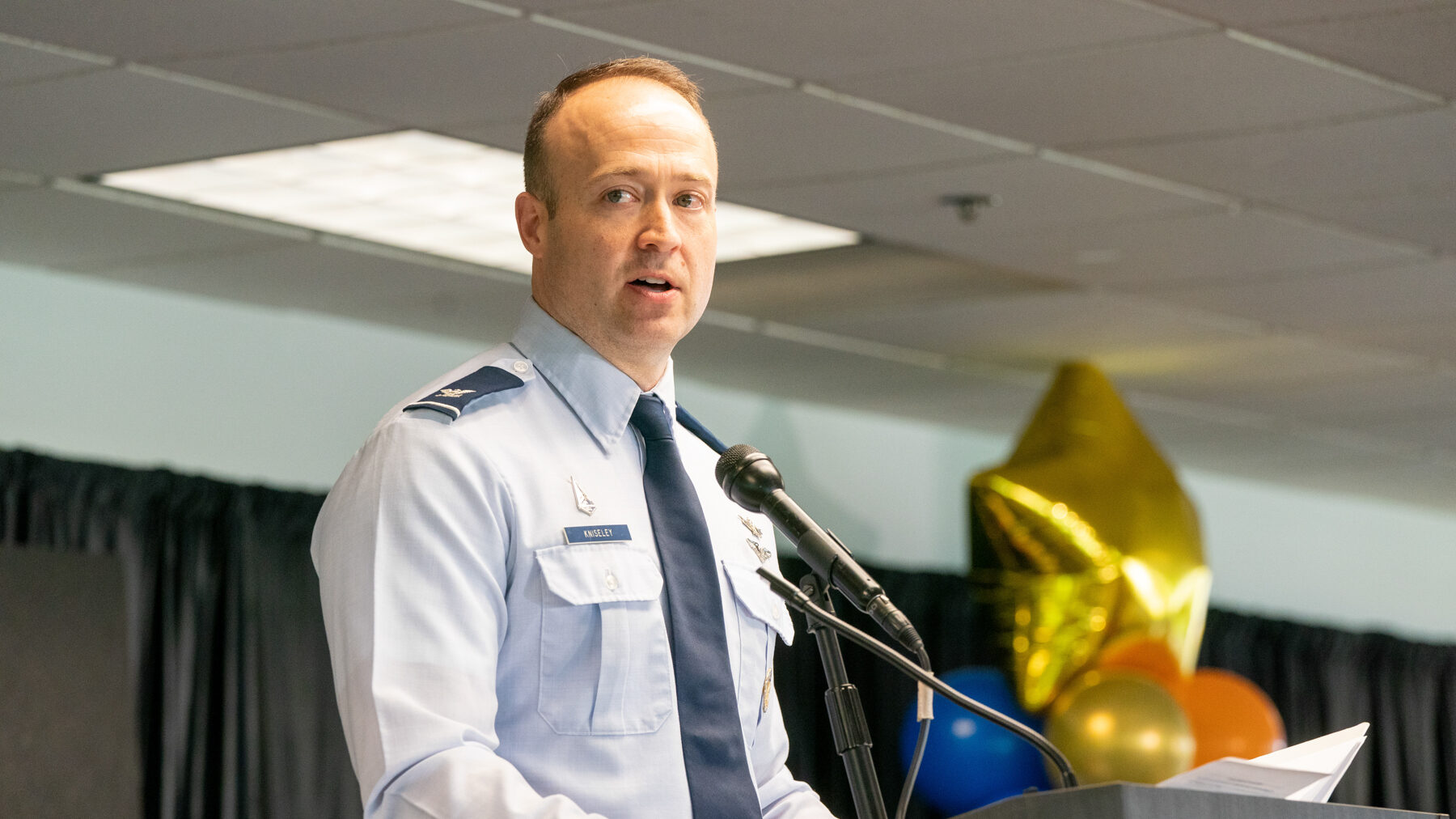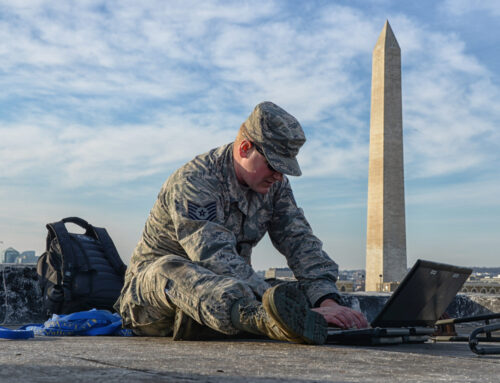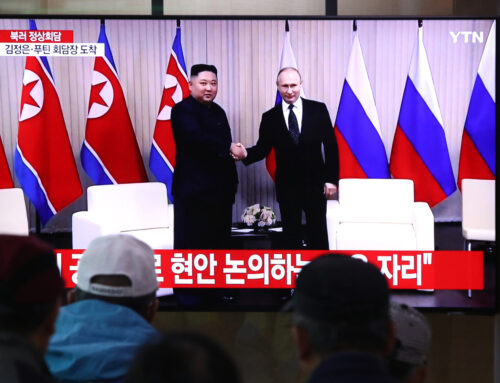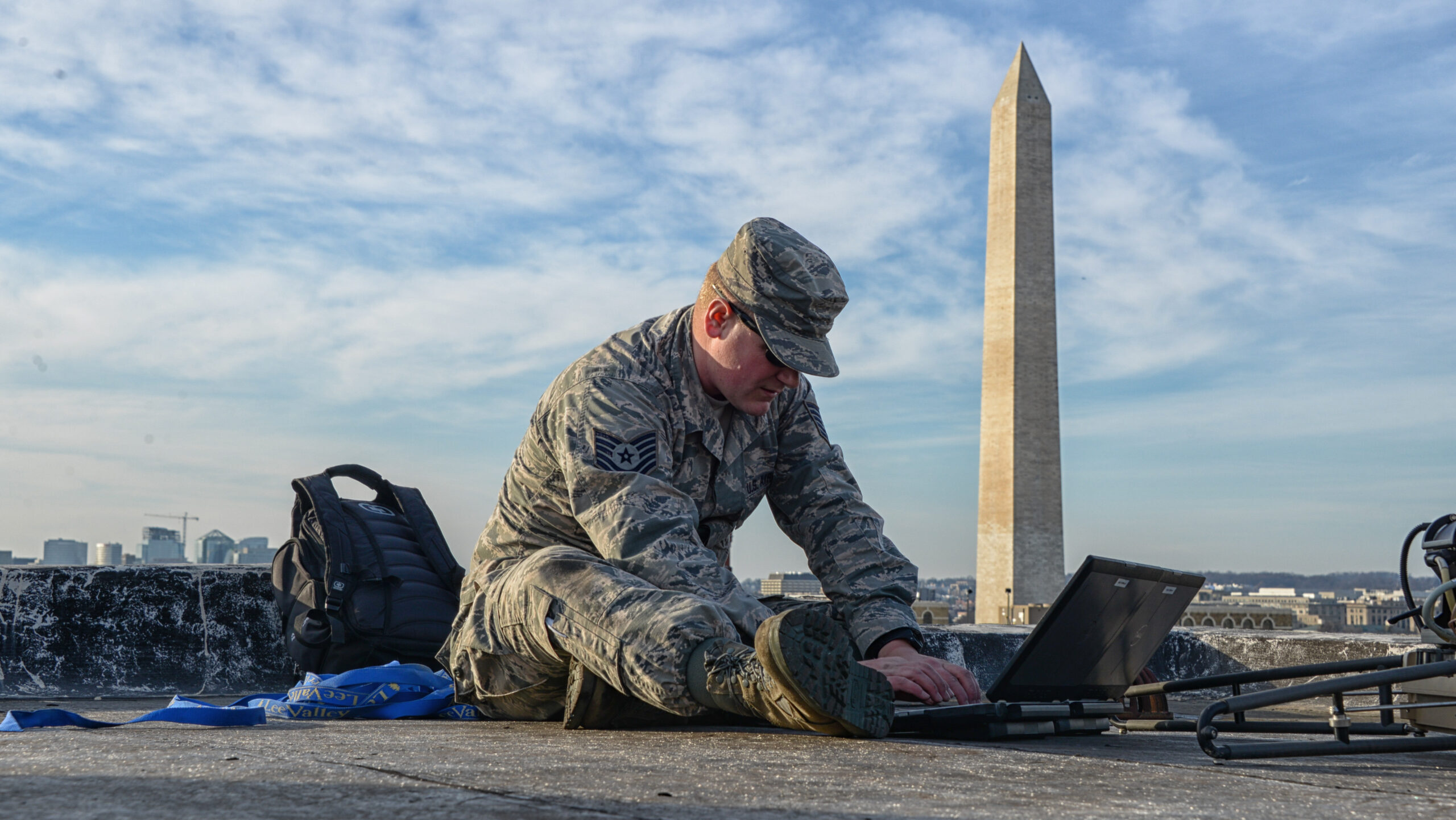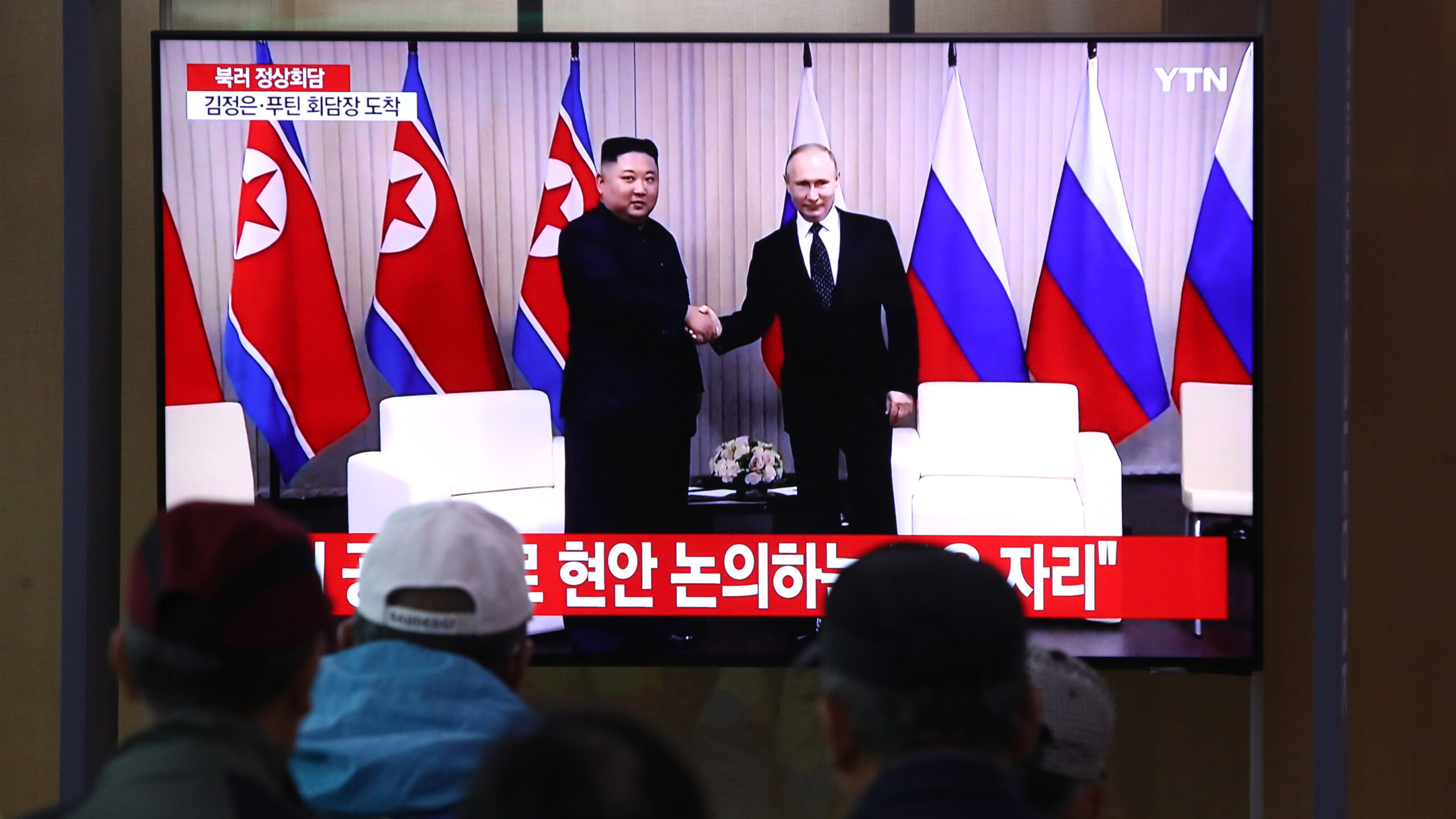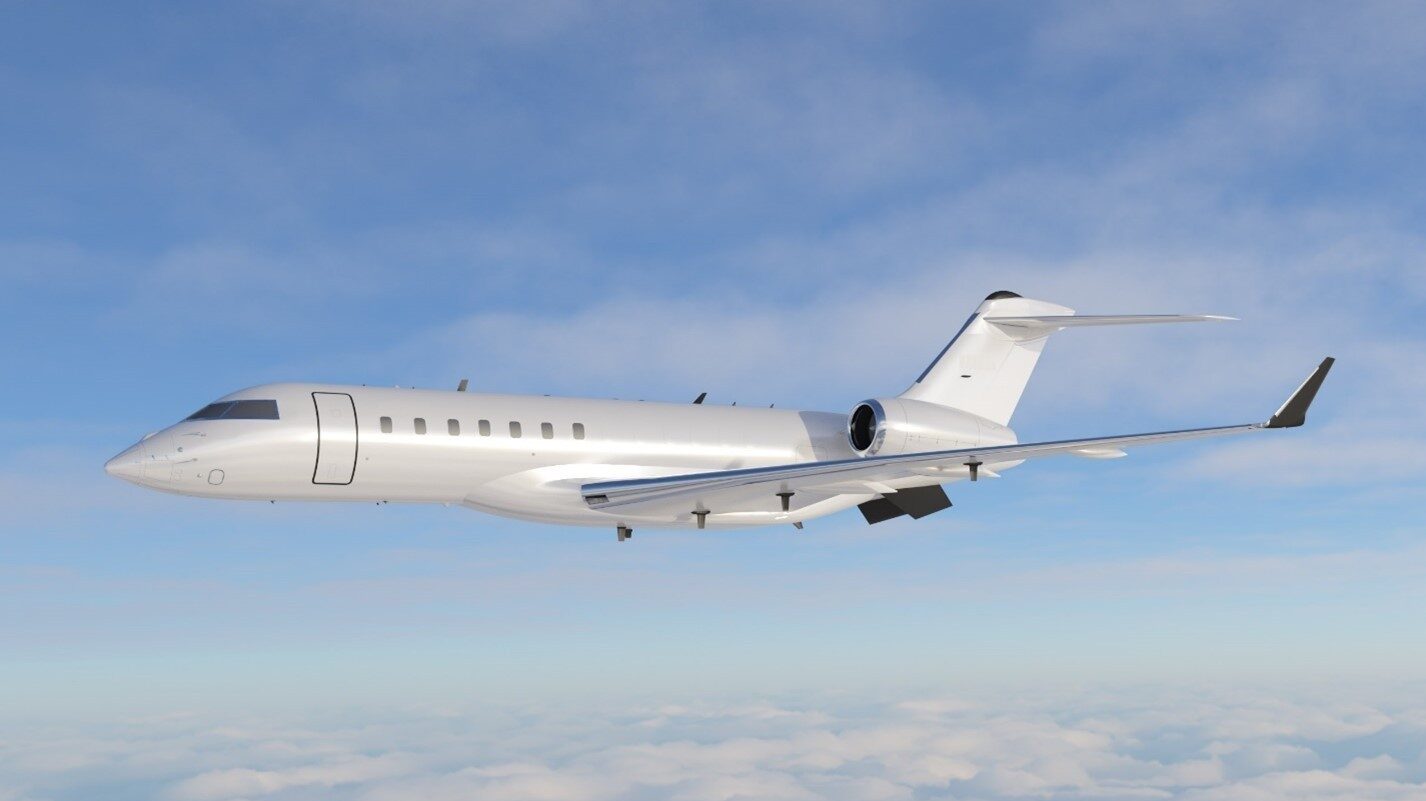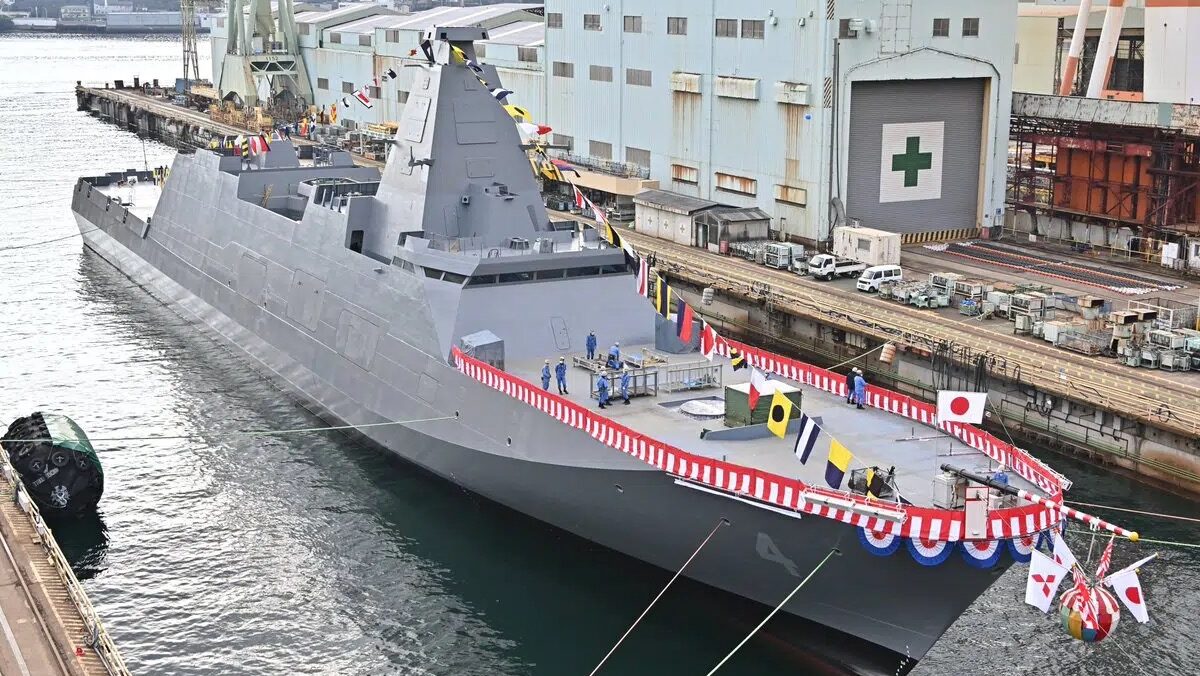Col. Rich Kniseley, head of Space Systems Command’s Commercial Space Office. (US Air Force photo by Cherie Cullen)
WASHINGTON — When the Space Force contracts commercial companies to provide “reserve” capabilities that could be “surged” in times of conflict — and possibly denied to non-US customers for a period of time — those joining can expect a number of peacetime benefits in exchange for their willingness to serve, according to the head of the Space Force’s Commercial Space Office (COMSO).
Speaking to reporters on Thursday during Space Systems Command’s annual Space Industry Days conference, Col. Rich Kniseley said these benefits could include: longer funding periods; in-depth threat briefings based on a firm’s security clearance status; and opportunities to participate in Pentagon wargames.
Kniseley, who is spearheading the work to develop a space version of the Civil Air Reserve, called the Commercial Augmentation Space Reserve (CASR), stressed that while the plan is still nascent, a number of elements are emerging based on industry feedback to sessions the Space Force held in August.
“[O]verwhelmingly, I think industry is still very positive on CASR, we still have some runway to fix some of the concerns, and we’re definitely on a path with what industry has been asking for,” he said.
During a conference panel discussion, Kniseley said that his game plan is still to release the first set of initial CASR contracts to providers of space domain awareness data and analysis — though his timeframe has slipped a bit, moving from late this year to early next year.
“I’m very confident that we will have our first CASR contracts by early of next year, targeting space awareness,” he said.
Kinseley told reporters his office already is working with US Space Command’s multinational Joint Commercial Operations (JCO) cell, headed by Barbara Golf, to craft the contracts already in place through the Global Data Marketplace.
The JCO gathers and disseminates commercial space monitoring data to augment military space surveillance, primarily through the National Space Defense Center, which in turn brings together military and Intelligence Community (IC) operators to determine how best to prevent adversary attacks on Defense Department space systems.
“The contracts that we will do with space domain awareness will be very much linked with what Ms. Golf is doing in the JCO. In fact, they will be building upon the current contracts that are already being utilized through the Global Data Marketplace,” Kniseley said.
But based on feedback from industry, the Space Force “would like to do longer periods of performance for would-be CASR members,” he said, noting that a lot of the JCO contracts currently are “month to month.”
Kniseley told the conference that his team also is working with the JCO to ensure that CASR services contracted actually will be useful to SPACECOM operators and properly integrated into joint force concepts of operations.
CASR Missions To Track Space Force Commercial Strategy
“I think sometimes industry is looking at CASR is like, I go to the grocery store and I slap organic on it, and, people automatically want to buy it. CASR is going to be aligned very well with the [Space Force] commercial strategy, and it’s going to be mission areas that are on the commercial strategy that we’re going to be going after,” he said.
“We are doing mission area assessments right now for commercial SATCOM [satellite communications] in the Indo-Pacific region. That’s ongoing right now. We will do other mission areas for other combatant commands as well, and what that’s going to show us is how much I need to have on contract. So I’m not buying commercial for commercial sake. I am filling a need for the war fighter and filling a gap or an area that we can augment with these commercial capabilities,” Kniseley explained.
CASR agreements for other mission areas, such as tactical surveillance, reconnaissance and tracking as well as alternate positioning, navigation and timing will follow.
“Every mission area is different. Every company is different,” Kniseley stressed. “So there’s not going to be a one size fits all, and we will tailor that based on the mission area and sometimes also with the vendor itself.”
He further noted that CASR participants won’t be required to jump from doing nothing to suddenly providing services at a maximum capacity.
“This isn’t a zero to 60 model. You will have a level set amount of capability on [tap during peacetime] in order for me to get this out to the warfighter to make sure that they know what they’re doing with this capability, that it’s stitched together into this overall space enterprise — and not this ‘military versus commercial’ [situation where] commercial is automatically on the shelf because I don’t know what to do with it,” Kniseley said.
“We’ll be funding in peace time. The contracts will also have pre-price negotiations or a surge capability,” he added.
“Denial Of Service” Clauses Still Unresolved
One thing the initial contracts will not address, however, is the question of how, when and why the Space Force might demand that CASR participants turn over all their capabilities to the US government and deny service to other customers, potentially including foreign governments as commercial/civilian users. That issue long has been controversial; for example, a sticking point for the National Reconnaissance Office in the 2020-2021 timeframe when it negotiated contracts with commercial remote sensing providers.
“[D]enial of service was a common concern across industry for CASR, and I think there’s different ways to go about it without overtly calling it out in the contract. One idea that we received from industry is, if a country or an actor is on the sanctions list, automatically we would have to not provide service to them. So, that’s not something that we’ve, you know, put our flag in, but these are additional ideas that we’re looking at,” Kniseley told reporters.
“So, those initial contracts will be a step in the right direction, but they won’t be the full pass or concept, if you will. We’re kind of taking a slower-walk approach to it,” he added.
Kinseley told the conference that the next step for CASR is another round of industry discussions planned for “early December,” when COMSO will elaborate on what options the Space Force intends to adopt as part of the contractual agreements.
“The threats are not slowing down, so we need to move at action and speed. We do need to fight tonight,” he said.


